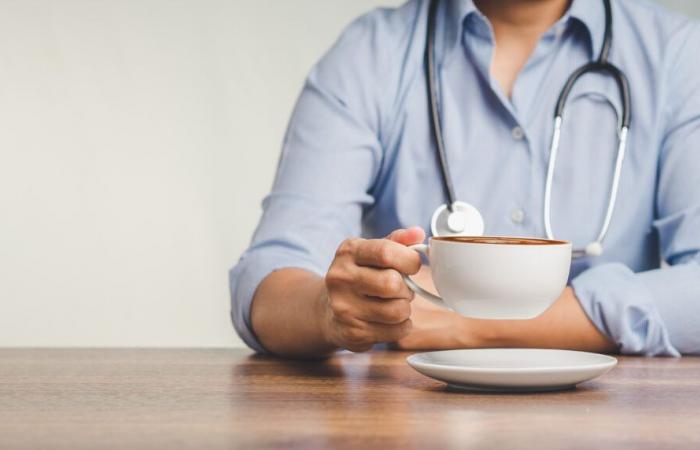Lead author Dr. Lu Qi, a professor at Tulane University, adds: “Research to date suggests that coffee consumption does not increase the risk of cardiovascular disease and even appears to reduce the risk of certain chronic diseases, such as type 2 diabetes. Taking into account the effects of caffeine, we looked at whether the time of day when one drinks coffee has a particular impact on heart health.”
Coffee at breakfast, a particular impact
The study analyzes data from 40,725 participants of the Health and Nutrition Cohort (NHANES, 1999 and 2018. Participants were asked about all foods and drinks consumed at least once a day, particularly coffee, in what quantity and at what time of day A subgroup of 1,463 had also completed a detailed weekly food diary. The researchers compared this information to death data over a period of 9 to 10 years. 10 years. The analysis reveals that:
- 36% of participants drank coffee in the morning;
- 16% throughout the day (morning, afternoon and evening);
- 48% did not drink coffee.
- Vs non-drinkers, morning coffee drinkers have a 16% reduced risk of death from all causes and a 31% reduced risk from cardiovascular causes;
- however, no reduction in risk is observed in all-day coffee drinkers vs. non-drinkers;
- in other words, morning coffee drinkers benefit from a reduction in mortality, whether they are moderate drinkers (2 to 3 cups) or excessive drinkers (more than 3 cups per day);
- Light morning drinkers (1 cup or less) also benefit from a reduced risk, but smaller.
It is not just the act of drinking coffee or the quantity consumed, but the timing of consumption that is important in this beneficial effect of coffee.
“While the study doesn’t tell us why drinking coffee in the morning reduces the risk of death from cardiovascular disease, one possible explanation is that drinking coffee in the afternoon or evening could disrupt circadian rhythms and blood levels. hormones such as melatonin. This could then promote certain cardiovascular risk factors such as inflammation and blood pressure.”






